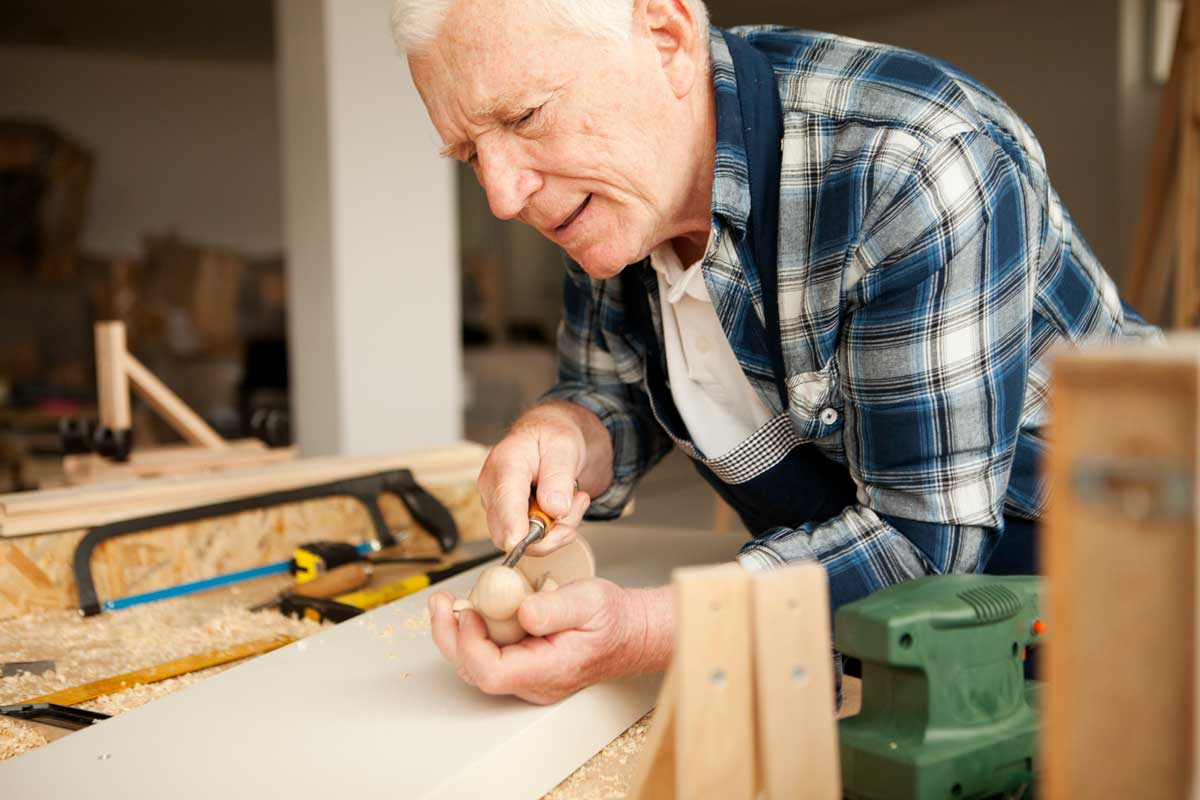Easy Woodworking Projects for Seniors

Discover a hobby that will exercise both sides of your brain.
Creativity has no age limit, and it’s never too late for a senior of any age or ability to learn a new skill that could turn into a passion. If you’re looking for a hobby that will challenge your mind, spark your creativity and give you the opportunity to work with your hands, easy woodworking projects can be a great place to start.
Woodworking projects can be as big or small as you want, and you can learn to create anything from a practical item or unique gift to a piece of fine furniture. Woodworking requires focus and attention to detail that can help strengthen your fine motor skills and keep your mind sharp. And, while woodworking is often listed among hobbies for senior men, it can be a fun and fulfilling hobby for any gender, or even a great activity for couples to enjoy together.
When you’re looking for new hobbies to try, it’s a good idea to choose something that allows you to start small and then progress as your skills improve. You’ll find that there are plenty of beginner woodworking projects that don’t require a complete woodworking shop, just a few simple tools.
Woodworking tools
While woodworking for beginners doesn’t require a full woodworking shop, there are a few supplies that will be needed. Most simple woodworking projects for seniors can be done with just a few hand tools. For those who struggle with grip or prefer a speedier process, power tools can make the process easier and more comfortable. Following are some essential woodworking tools with their power counterparts:- Screwdriver or power drill and driver
- Hand saw or miter saw
- Hammer and nails or a nail gun
- Sandpaper or an orbital sander
- Ruler or tape measure
- Water-resistant wood glue
- Pencil
Safety equipment and procedures
As with any project involving tools or dust, safety is an important consideration. While beginner woodworking projects don’t usually require the use of heavy-duty power tools, it’s still important to take proper safety measures. The first thing to do, regardless of what project you’re undertaking, is to acquire and wear the right safety equipment including:- Safety goggles or protective eyewear
- Gloves
- Dust mask
- Closed-toe shoes
- Hearing protection if using power tools




